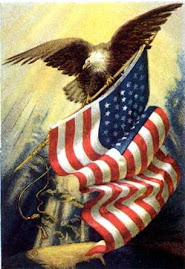You may have seen my green-and-purple "Self-Striping Argyle Scarf". (Sorry, I don't know how to link the post with the picture, and Flickr is prejudiced against letting me blog the same pic twice.) Here's how to make your own with any self-patterning yarn you have on hand.
Swatching (yes, you must swatch):
Cast on a convenient number of stitches, a multiple of 4, minus one--I use 11, since it's easy to multiply by. Find the exact point in the color-pattern repeat where the working yarn meets the cast-on stitches; this is hard to explain but easy to point out. It might be "just before the purple meets the green", for example.
Mark this spot in the next color-pattern repeat, so that you have exactly one repeat marked off; a small hair barrette or alligator clip is good for this.
Now work in Mistake Rib--*k2, p2, rep from * across, end k2, p1. Try to keep your tension constant. When you've knitted up the single color-pattern repeat you had marked off, calculate the number of stitches it took. For your scarf, you'll cast on slightly less than half that number--the exact number of CO stitches can take some trial and error.
Example:
I swatched a yarn with 88 stitches to the color-pattern repeat. Casting on 43 stitches produces a scarf with the color stripes stacked vertically, no diagonal movement.
Casting on 39 stitches gives an extremely slanted diamond pattern--you may like this look, or you may not.
41 cast-on stitches changes the Mistake Rib pattern a bit; it now ends just k1. I found 41 stitches to give nicely proportioned argyle diamonds.
Obviously, this all depends on your specific yarn. If you have a very short pattern-repeat, you can experiment with casting on a whole repeat's worth of stitches, 1.5 repeats, or even two. (Let me know how it turns out.) Very long pattern-repeats, such as are found in Kauni or Noro yarns--don't even bother. The pattern depends on having at least two different colors in every row.
You can try this technique in ordinary 2x2 rib, of course; I use Mistake Rib because it doesn't gather in as much, so you can see the whole argyle pattern, and also because I like the way the purl-bumps in Mistake Rib break up pooling and make the colors "sparkle".
Subscribe to:
Post Comments (Atom)


1 comment:
Thanks for the great explanation of how to achieve a good outcome with ombre yarns! Looking forward to making this scarf as a fun take-along project for road trips.
Post a Comment